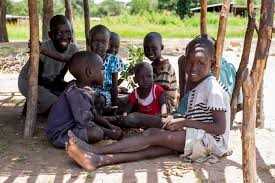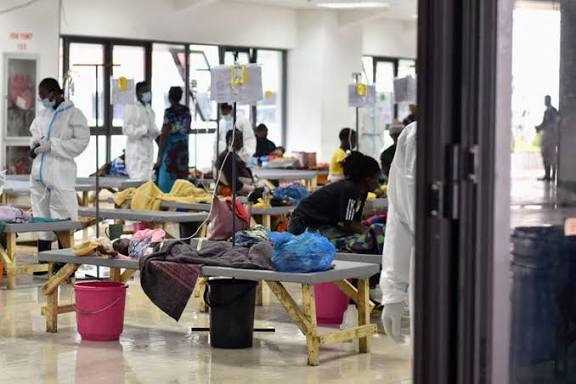
Oscar J Jeke
Zim Now Reporter
UNICEF has revealed that over 7.4 million children are living in child food poverty as a result of the El-Niño induced drought in Lesotho, Malawi, Namibia, Zambia and Zimbabwe, Southern Africa’s hardest hit countries
Among these children, over two million children are significantly affected by the climate shock, facing extremely poor diets.
The organisation’s revelations come after assessments of the food security outlooks in the drought-stricken countries, which have echoed calls for immediate intervention in financing to ensure children are not exposed to life-threatening childhood diseases.
According to presented country-focused data, UNICEF said Zambia has over 52 000 children under the age of five, Botswana 12 000, with Zimbabwe recording 580 000 young children living in severe food poverty.
Related Stories
Presenting the statistics, UNICEF Regional Director for Eastern and Southern Africa, Etleva Kadilli said that, “The humanitarian needs children are facing due to El Niño are extremely concerning. Increasing food insecurity and malnutrition, challenges in accessing safe water and sanitation, as well as risks to disease outbreaks such as cholera are a serious threat.
“Thousands of children are on the brink of being irreversibly impacted in their health and growth because of the climate-related crisis and this warning should not go unheard by the international community.
“Through innovative collaboration, ideas and financing that include community engagement such as the mother-led care groups in Zimbabwe and the large-scale multi-sectoral nutrition programme in Zambia, we can ensure children and families are supported by sustainable efforts that protect them from some of the severe consequences of climate crises in the region.
Strengthening national social protection systems is one of UNICEF’s key tools in supporting families build resilience to future shocks and recover from the effects of emergencies”.
The organisation also disclosed that the adult populations in the countries mentioned have also reached alarming levels, with Namibia, Malawi and Zimbabwe recording over half of their respective populations being food vulnerable.
Zambia was the first in the region to declare a State of Disaster followed by the other such as Botswana, Malawi, Namibia, Zambia and Zimbabwe, Lesotho being the latest in that regard.




















Leave Comments